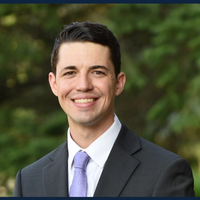 Apr 27th, 2022
Apr 27th, 2022Major Revisions to Open Meetings Law Authorizing Remote Board Meetings in “Extraordinary Circumstances”
On April 9, 2022, Governor Hochul signed Chapter 56 of the Laws of 2022 relating to the state budget for 2022-2023. Notably, the bill amends the Open Meetings Law to allow expanded use of videoconferencing by public bodies to conduct open meetings, in very limited circumstances, regardless of a declaration of emergency, until July 1, 2024. The Committee on Open Government has since published a Q&A regarding these changes, found here.
The law, Public Officers Law §103-a (“POL §103-a”), expands, in “extraordinary circumstances” only, the ability of public bodies to meet using videoconferencing technology where certain Board members can participate remotely without affording access to the public from their remote location. Please note, a Board of Education may, but is not required to, allow members to participate remotely in “extraordinary circumstances” as outlined below. These changes become effective June 8, 2022, and until then Districts may continue to meet remotely via videoconferencing without public in-person access to meetings as long as the public can view and listen to the meeting which also must be recorded and later transcribed.
In the meantime, Districts desiring to utilize videoconferencing for members who would not afford members of the public the opportunity to be present at their remote location, after June 8, 2022, must take action to authorize the same. Each District that wishes to allow for remote attendance by its members at locations that do not allow for in-person physical attendance by the public is required to adopt a resolution authorizing such remote attendance. However, a Board of Education may only vote on the matter after a public hearing on the topic.
Notably, this change allows for the quorum requirement to be fulfilled by a requisite number of members participating together or remotely from physical location(s) open to the public. Only those members participating remotely where in-person access is not permitted are not counted towards the quorum. Practically speaking, any member dealing with “extraordinary circumstances” (e.g., illness) most likely would not want members of the public participating from their location. If the quorum requirement as prescribed by POL §103-a is otherwise met, the law now authorizes excluding the public from those locations in such instances. However, POL §103-a does not authorize fully remote board meetings with no access at any of the remote locations, unless there is a “state disaster emergency declared by the governor…or a local state of emergency proclaimed by the chief executive of a county, city, village or town.”
To utilize the extraordinary circumstances exception, the District must establish written procedures outlining attendance guidelines for Board Members and the public, which must be posted on the District’s website. These procedures must also include what constitutes an “extraordinary circumstance” that excuses a member from in-person participation. As a result, Boards of Education can control what constitutes an “extraordinary circumstance” in their written procedures as long as it is consistent with the law. While POL §103-a lists “disability, illness, caregiving responsibilities, or any other significant or unexpected factor or event which precludes the member’s physical attendance at such meeting,” this list is non-exhaustive, and Boards of Education may tailor this definition according to their needs.
Other miscellaneous requirements to utilize videoconferencing include the obligation to: inform the public (by notice) that videoconferencing will be used, including instructions for viewing and/or participating; provide the same opportunity for members of the public to view the meeting and participate, both by remote technology or in person, in real time, if any; ensure that Board Members can be heard, seen and identified, while the meeting is being conducted (other than executive sessions); ensure that meeting is recorded and posted to the District website for a period of five years, and transcribed upon request (other than executive sessions); and note which board members participated remotely in the meeting minutes.
Overall, POL §103-a imposes strict requirements but may prove to be a useful tool for Boards of Education. When taking advantage of these soon-to-be effective changes, take special care in how notices are drafted, records for discussion are posted, and completing follow-up actions like posting records and transcriptions.
Please note, the addition of POL §103-a is not intended to limit what Boards of Education were previously authorized to do regarding videoconferencing for meetings. For example, if a Board Member participates via videoconferencing at a location that does allow for in-person physical attendance by the public, then they may do so absent any extraordinary circumstances outlined above, as long as the Board provides notice that videoconferencing will be used, identifies the locations for the meeting, states that the public has the right to attend the meeting at any of the locations, and posts a notice at the remote site, stating that the public is invited to attend.
If you have any questions regarding the adoption process, written procedures, or this Open Meetings Law revision generally, please do not hesitate to reach out at the number or email below.




